With each passing year in the USA, the respect for Indian Americans (or Asian Indians as the U.S. Census Bureau would like to call them, in order to separate them from American Indians) has gone up. They are at the forefront of enterprise, research, information technology, engineering, medical profession, academics, cutting-edge technology, and are generally considered achievers and go-getters. According to surveys, their median family income (USD 91,195) is higher than any other category in the USA, and way above the national average of USD 50,740—a telling reflection of how the community has an ethos built around hard work, discipline, and an enduring value system. In a way, the economic, academic and entrepreneurial success of the Indian American community of the USA makes it a creamy layer, and naturally the community’s reputation itself is always at stake. It hardly matters that many western ranking agencies continue to look down on the once-inspiring Indian education systems, especially our university systems, and place them very poorly on a global ranking system. It is the same Indians, many of them graduates of the Indian systems of education, who go to the USA and do exceptionally well. If there is an agenda behind this canard, we do not know, but it does seem everyone is quite happy overall with the way Indians are in the USA. So when the US taxmen doubled their efforts to go after wealthy Indian Americans, suspected of stashing away undeclared money in their native land, and in offshore accounts, eyebrows were raised. While India has long believed that political black money has been secreted away in overseas banks, especially those in Switzerland, the USA believes that American dollars earned by Indians are making their way, possibly clandestinely, to India.
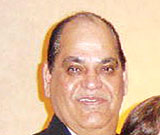 |
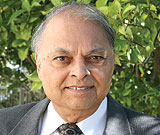 |
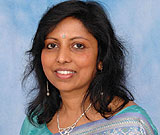 |
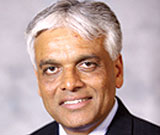 |
“It is important that the
NRI/PIO community in America be aware and comply with voluntary disclosures of foreign accounts by August 31, 2011. The penalties and fees could be significant if disclosures are not made in time.”
Lal K. Motwani President, NFIA |
“Now that the GOPIO has become aware of this IRS initiative and the deadlines, we will use our networks to urge full compliance. Indian community in the USA, by and large, consists of very progressive, hard working, law abiding citizens .”
Inder Singh Chairman, GOPIO |
"We are asking the IRS for more time so the Indian American community and all affected parties can properly comply with U.S. law and ensure we meet the transparency and disclosure requirements expected of us"
Sunita Kanumury President, AAPI
|
“We urge you to review this request and give consideration to easing the undue and unnecessary burdens on the honest, law abiding United States’ taxpayers. The deadline should be extended until December 31, 2012.”
Hemant D Patel Chairman, AAHOA |
OVDI
On February 8, 2011, the U.S Internal Revenue announced the 2011 Offshore Voluntary Disclosure Initiative (OVDI), following up on the 2009 OVDI. The deadline for the 2011 OVDI is August 31, 2011, and looms large over those who are yet to disclose their overseas assets. The 2011 OVDI covers a period between 2003 and 2010 and it takes into account all communities, including the more financially successful Indian American community. “The time has come to get back into compliance with the U.S. tax system, because the risks of hiding money offshore keep going up,” IRS Commissioner Douglas Shulman said recently. “Our goal is to get people back into the system. The second voluntary initiative gives people a fair way to resolve their tax problems.” Fair is the word, for a few months ago an Indian faced the brunt of an incisive IRS investigation. In a 47-page statement filed before a San Francisco court, the IRS had said that there were 9,000 US residents of Indian-origin who had USD 100,000 minimum-balance accounts at HSBC India, but fewer than 1,400 had disclosed the existence of their accounts. U.S. laws require citizens to disclose any foreign account containing USD 10,000 or more. The US hunt for possible Indian-American tax evaders follows a case early this year when federal prosecutors nailed V Dahake, a US citizen. A grand jury in Newark, New Jersey indicted Dahake, charging him with undeclared accounts in the British Virgin Islands and in India (HSBC bank), thereby causing losses to the US treasury. With August 31 fast approaching, time is running out, and, therefore, top Indian organizations in the US are individually and jointly petitioning various US Government authorities, including President Obama, Treasury Secretary Timothy Geithner, Commissioner Shulman for an extension of the deadline until December 2012. In a press statement, the Global Organization of People of Indian Origin (GOPIO) asserts that the Indian community in the USA, by and large, consists of very progressive, hard working, law abiding citizens who do not deliberately or intentionally violate any US laws or IRS rules governing due taxes. The statement adds that many people holding foreign bank accounts were unaware of these rules simply because these rules were never publicized by the IRS to the general public. In many cases, people had transferred money to have a retirement income or home or in the foreign country, or to provide support for extended family in the foreign countries. There was no deliberate intent to avoid taxes on interest earned during the process of acquiring homes or supporting family or saving for children’s education. It was not planned to be unjustifiable enrichment.
GOPIO IN THE LEAD
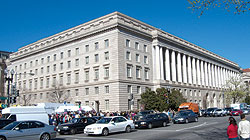 Says Inder Singh, Chairman of the GOPIO, “Now that the GOPIO has become aware of this IRS initiative and the deadlines, we will use our networks to inform and urge full compliance. We, however, respectfully request that the remedies fully described in our June 27, 2011 letter to Treasury Secretary Geithner be considered and enacted.” Adds Ashook Ramsaran, the executive vice president of GOPIO, “The financial impact on those who do not file their voluntary disclosures of foreign accounts by August 31, 2011 can be significant. Everyone who could be affected is urged to comply in order to avoid the later consequences of hefty fees and penalties”. Says Inder Singh, Chairman of the GOPIO, “Now that the GOPIO has become aware of this IRS initiative and the deadlines, we will use our networks to inform and urge full compliance. We, however, respectfully request that the remedies fully described in our June 27, 2011 letter to Treasury Secretary Geithner be considered and enacted.” Adds Ashook Ramsaran, the executive vice president of GOPIO, “The financial impact on those who do not file their voluntary disclosures of foreign accounts by August 31, 2011 can be significant. Everyone who could be affected is urged to comply in order to avoid the later consequences of hefty fees and penalties”.
The letter to Geithner requests:
● That penalties of 25 per cent foreign bank and financial accounts (FBAR) on assets of law abiding citizens be eliminated.
● That presumption of guilt is not a fair and equitable application of law.
● That penalty on the highest value of the assets is immoral and unfair.
● That penalties should not be levied on law abiding citizens who missed declarations or filing deadlines due to lack of information or timely notification.
● That the deadline should be extended to December 31, 2012 to allow more persons who were not previously aware to fully comply.
● To substantially reduce the 20 per cent accuracy penalty on undeclared taxes for those who did not knowingly miss the filing deadlines.
● To publicize the OVDI in ethnic newspapers and other community media in multiple languages.
● That extensive interviewing of IRS representatives take place in print, radio and television media to bring about more awareness resulting in compliance by more tax payers.
JOINT APPEAL
Lal K. Motwani, president of the National Federation of Indian-American Associations (NFIA), told INDIA EMPIRE that “it is important that the NRI/PIO community in America be aware and comply with voluntary disclosures of foreign accounts by August 31, 2011. The penalties and fees could be significant if disclosures are not made in time.” NFIA itself issued a joint community appeal to President Obama on July 19 with copies marked to Geithner and Secretary of State Hillary Clinton, and to Shulman on August 3. The joint appeal was issued under the banner of The Indian American Community led by the GOPIO. Other signatories, apart from Singh and Motwani are Sunita Kanumury, MD, president of the Oak Brook, Illinois-headquartered American Association of Physicians of Indian Origin (AAPI) and Hemant D Patel, chairman and Fred Schwartz, president of the Atlanta, Georgia-headquartered Asian American Hotel Owners Association (AAHOA). Says Kanumury, “We are asking the IRS for more time so the Indian American community and all affected parties can properly comply with the U.S. law and ensure we meet transparency and disclosure requirements expected of us.”
A SUCCESSFUL, VIBRANT COMMUNITY
 Indian Americans own 50 per cent of all economy lodges and 35 per cent of all hotels in the United States, which have a combined market value of almost USD 40 billion. In 2002, there were over 223,000 Asian Indian-owned firms in the U.S., employing more than 610,000 workers, and generating more than USD 88 billion in revenue. With many takeovers and buyouts since, these figures would have appreciated significantly over the years. Indian Americans own 50 per cent of all economy lodges and 35 per cent of all hotels in the United States, which have a combined market value of almost USD 40 billion. In 2002, there were over 223,000 Asian Indian-owned firms in the U.S., employing more than 610,000 workers, and generating more than USD 88 billion in revenue. With many takeovers and buyouts since, these figures would have appreciated significantly over the years.
According to the results of the 2010 U.S. Census released by the U.S. Census Bureau, the Asian Indian population in the United States grew from almost 1,678,765 in 2000 to 2,843,391 in 2010: a growth rate of 69.37%, the highest for any Asian American community, and among the fastest growing ethnic groups in the United States.
Of the 2.843 million Indian Americans in the US, the top 10 states of their domicile according to U.S. Census 2010 are California (528,176), New York (313,620), New Jersey (292,256), Texas (245,981), Illinois (188,328), Florida (128,735), Virginia (103,916), Pennsylvania (103,026), Georgia (96,116), Maryland (79,051). They are spread across all states in the U.S.
A joint Duke University – UC Berkeley study revealed that Indian immigrants have founded more engineering and technology companies from 1995 to 2005 than immigrants from the U.K., China, Taiwan and Japan combined. A University of California, Berkeley, study reported that one-third of the engineers in Silicon Valley are of Indian descent, while 7% of valley hi-tech firms are led by Indian CEOs.
Indians along with other Asians, have one of the highest educational qualifications of all ethnic groups in the US. Almost 67% of all Indians have a bachelor’s or high degree (compared to 28% nationally and 44% average for all Asian American groups). Almost 40% of all Indians in the United States have a master’s, doctorate or other professional degree, which is five times the national average.
Though they form less than 1 per cent of the American population, Indian Americans have created a buzz with their knowledge sets. In March, over 1,700 high school seniors vied for a top prize of USD 100,000 at one of America’s most prestigious science competitions. Here, students mostly in the age-group of 15 to 18, submitted individual projects to what is one of America’s most prestigious science competitions—the Intel Science Talent Search. Twenty five per cent of the 40 finalists were of Indian origin. In June, Indian origin students outshined all else in the USA at the national spelling bee, something they have done consistently over the past decade. In fact, the contest was won by an Indian origin student. Both issues were part of
INDIA EMPIRE cover stories in June and July.
Given the circumstances of a doddering economy, America is tightening enforcement on tax-payers. Naturally, Indian Americans, with the highest median income, were expected to be at the forefront of all investigations. They are generally law abiding, and very talented. It remains to be seen if the appeals by the Indian American organizations like the GOPI, NFIA, AAPI and AAHOA allows them a longer grace period to get their acts and taxes in order, or the taxman will embarrass them come what may.
|